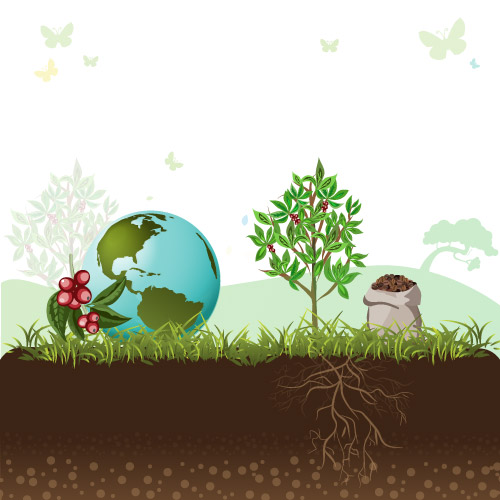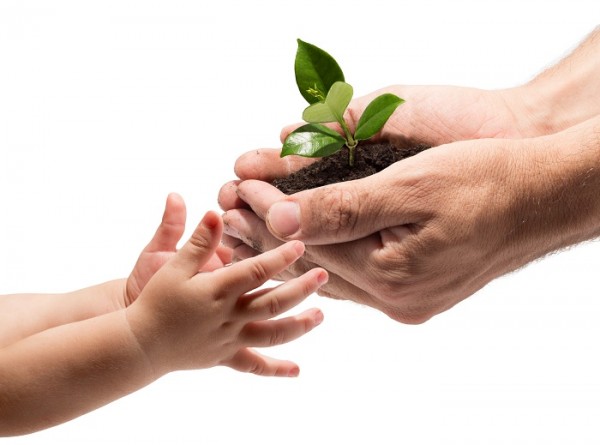
April 15 was named “Soil Conservation National Day”, and this day was chosen because it is the date of birth of Hugh Hammond Bennett, a prestigious American citizen, considered the father of soil preservation. Between the years 1920 and 1930, he made the United States aware of the importance of soil protection and the magnitude of erosion threat. His publications brought light to the fact that human existence on Earth is linked to soil formation and that the poor use of the soil is a serious risk to our economic activities. His efforts lead the U.S. Department of Agriculture to create a specialized technical service in charge of delivering information to farmers about erosion and conservation. For this reason, society must reflect about how it uses the soil, and make its maintenance feasible to produce in a more sustainable way.
Sustainability in coffee crops is strengthened through conservation production systems that minimize the impacts to the environment, respecting the limits of natural resources, such as water and soil, which provide appropriate work conditions to farmers, according to specific laws. Furthermore, it generates attractive financial return to farmers for them to produce and have the conditions to continue to develop the activity. The sustainable production systems have, as their basis, Good Agricultural Practices (GAP).
According to the Food and Agriculture Organization of the United Nations, GAPs can be defined as a set of principles, rules and technical recommendations applied to food production, processing and transportation, geared towards taking care of human health, protecting the environment and improving work conditions for workers, farmers and their families. Among the purposes of GAPs, we can mention: increase farmers’ profitability, with more production yield and quality, increase consumers’ confidence in production quality and food safety, minimize environmental impact with the rational use of crop protection products and of natural resources, adopting procedures that ensure health and safety to farmers, and perform actions that promote sustainable agriculture and rural development.
Sustainability is important not only for Cecafe. It is a vital area in the coffee chain in the whole world. The forecast for the future is that to produce enough coffee to supply the world we need to use sustainable practices in the fields. We have to continue changing our business and production mentality to ensure the continuity and development of our market.
In this sense, Cecafe acts to promote good practices, including soil conservation and management. The main purpose of the Digital Coffee Farmer Program , created by Cecafe in 2006, is to bring digital inclusion to the rural area and disseminate sustainability in coffee-growing areas. The program consists of 14 classes of two hours each, of which 6 are of applied computer science and 8 classes of Good Agricultural Practices, which have as reference and support material the Coffee Sustainability Curriculum. The latter has two of the 18 items that deal specially with soil management and conservation. The teacher of each class dedicates one whole class to discuss the theme. Adding to field practice, other related subjects are taught, such as irrigation and integrated coffee plantation protection. The essential actions to soil conservation are extended to property care as a whole, among which the preservation of native vegetation, and the use water in a rational way.
Over the years, the efforts of research, development and innovation institutions including the Empresa Brasileira de Pesquisa Agropecuária (Embrapa), Fundação Procafé, Instituto Agronômico (IAC), Instituto Capixaba de Pesquisa (Incaper), Assistência Técnica e Extensão Rural, Centro de Desenvolvimento Tecnológico do Café (Ceticaf) among others, bring new technologies and technical solutions, which are added to investments by companies and entities that represent the industry in promoting and implementing improvements.
The disseminated use of good practices in Brazilian coffee-growing activities strengthen the path for the industry to develop itself on a sustainable basis and, in this sense, soil management and conservation bring countless benefits to society as a whole and to future generations.
Marcos Matos, General Manager — CECAFE
Marjorie Miranda, Social Responsibility and Sustainability Coordinator — CECAFE


Leave A Comment